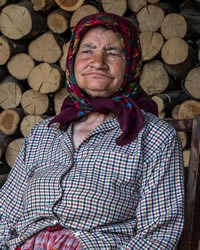Romani, Baltic in Poland

Photo Source:
Judith - Flickr
Creative Commons
|
Send Joshua Project a map of this people group.
|
| People Name: | Romani, Baltic |
| Country: | Poland |
| 10/40 Window: | No |
| Population: | 13,000 |
| World Population: | 28,600 |
| Primary Language: | Romani, Baltic |
| Primary Religion: | Christianity |
| Christian Adherents: | 55.00 % |
| Evangelicals: | 2.00 % |
| Scripture: | Complete Bible |
| Ministry Resources: | Yes |
| Jesus Film: | No |
| Audio Recordings: | Yes |
| People Cluster: | Romani |
| Affinity Bloc: | Eurasian Peoples |
| Progress Level: |
|
Introduction / History
In their homeland of India, they were originally called Dom, meaning man. Later, Dom developed into Rom. Today, they prefer to be called Romani in Europe; but in the Middle East and North Africa, many still refer to themselves as 'Dom' or 'Domi'. Here, the term 'Dom' will be used for this people group found in the Middle East, and 'Romani' will be used as a general, more recognizable designation for the larger people group. There are many fascinating folk tales about their origins that are still passed down from generation to generation.
Originally coming from India, the Romani are now scattered throughout the world. Little is known today about the lives of the 2 to 3 million Dom who live in European countries. This is largely due to the closed communities they maintain. Too often Dom people hide their identity on purpose from government workers. They do this to protect themselves, but it also keeps them marginalized wherever they live.
Today, communities of Dom are located in the Middle East, the Americas and Europe. For example, there are Romani people in Poland who speak the Baltic Romani dialect. Romani people have been in Poland since the 1500s.
What Are Their Lives Like?
The Romani in Poland have a high unemployment rate, and they often have substandard housing. They are not well accepted in Poland.
Romani lifestyles vary widely. There are those who maintain a nomadic lifestyle. They offer their services as entertainers, musicians, or metal workers to other nomadic groups. Also included in the nomadic lifestyle are Romani migrant workers. They harvest crops. Some support themselves as craftsmen, peddlers, fortunetellers and dancers in city streets.
What Are Their Beliefs?
The Romani people tend to adopt the dominant religion of their host country, so many Romani people in Europe would consider themselves Christian. In Poland, Romani consider themselves Catholic, and they have their own special pilgrimage featuring an image of the Virgin Mary.
Romani people usually consider religion a personal matter, and they are hesitant to talk about it with anyone, especially outsiders. Superstition and "the good elements" of many religious systems make up the nature of their beliefs. Spiritism is dominant in their thinking as to why things happen in the world. They strongly fear evil spirits and curses. Romani fortunetellers offer to make clients a potion that will ward off curses.
What Are Their Needs?
In almost all of the countries they live in, their rudimentary command of the local language and limited use of written documents have contributed to their political powerlessness. Some who have settled are in transition, as they seek to become a part of the social systems around them. In an effort to fit in, they may abandon the traditional clothing, tattooing, dancing and fortune telling that are part of the Romani lifestyle. They may even deny their ethnic identity.
Regardless of their efforts to assimilate into the mainstream society, the Romani rarely have official status or citizenship in their country of residence. Their efforts to remain anonymous often leaves them without an official birth certificate or any other essential ID. The concept of owning land is not inherent to the nomadic Romani world view, and they find it difficult to adjust to such an outlook. Few families own the plots of land on which they locate their settlements or camps. Therefore, they are often subjected to forced relocation.
Prayer Points
Pray for the Lord to direct Romani leaders to lead their people into ways of life that benefit all people concerned.
Pray for Romani people to understand the supremacy of Christ, who is far above any "good" elements of existing religious systems.
Pray for the Lord to thrust out Christ's ambassadors who can earn their trust and lead them to the cross.
Pray that soon Romani disciples will make more disciples.
Pray for the Lord to use nomadic Romani people as preachers of the Word of God and disciplers.